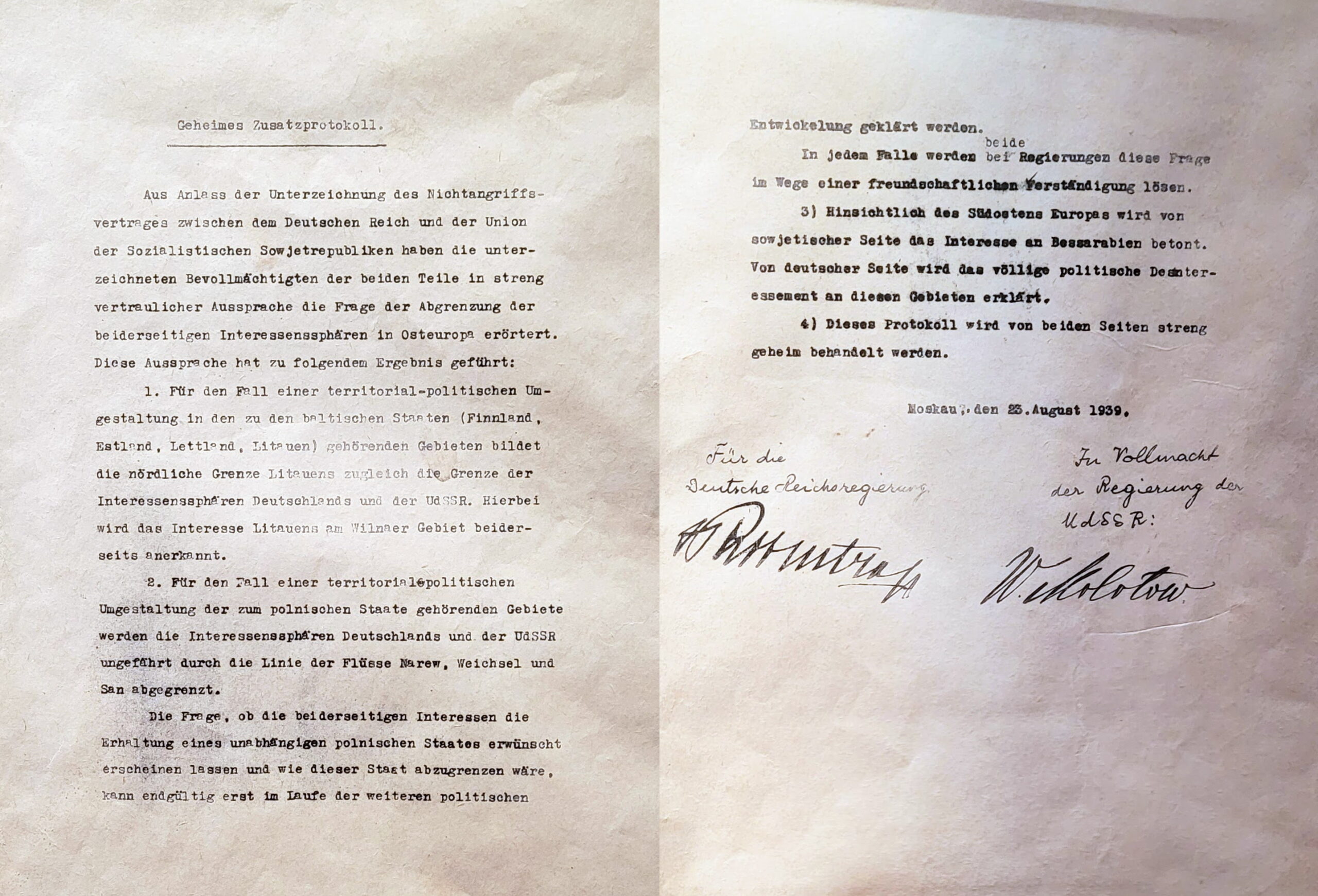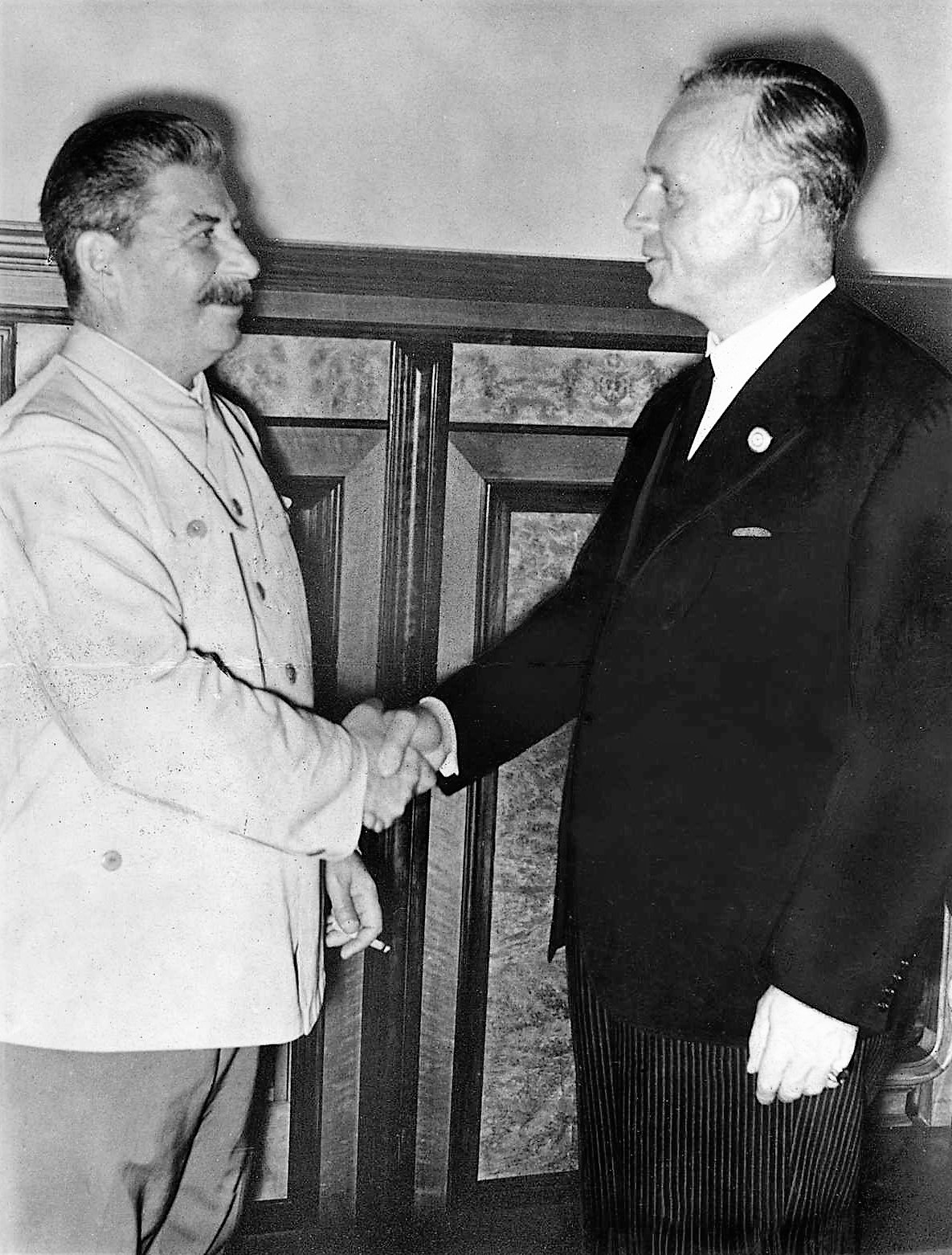Shortly after midnight, on the night of August 23, 1939, Joseph Stalin drank a toast to Adolf Hitler. The occasion, of course, was the signature of the Nazi-Soviet Pact – or Molotov-Ribbentrop Pact – the non-aggression treaty between Moscow and Berlin which gave a green light to Hitler’s aggression against Poland and so paved the way for the outbreak of World War Two in Europe. It is a date which is seared into the memories of many millions of people in Poland, Finland Romania, and the Baltic States – or those whose origins lie there – yet its significance is still strangely unrecognized in the standard western narrative of the war.
Our collective ignorance of the subject is surprising. For many of us, World War Two has a prominence today which seems to grow, rather than diminish, with each passing year. For some countries, it has passed from history into something like a national religion, as evidenced in the groaning bookshop shelves and repetitive television documentaries. In history publishing, it has become commonplace for every campaign of the war, every catastrophe and curiosity, to be subjected to endless reinterpretations and re-assessments, resulting very often in competing schools of thought and competing historical volumes.




